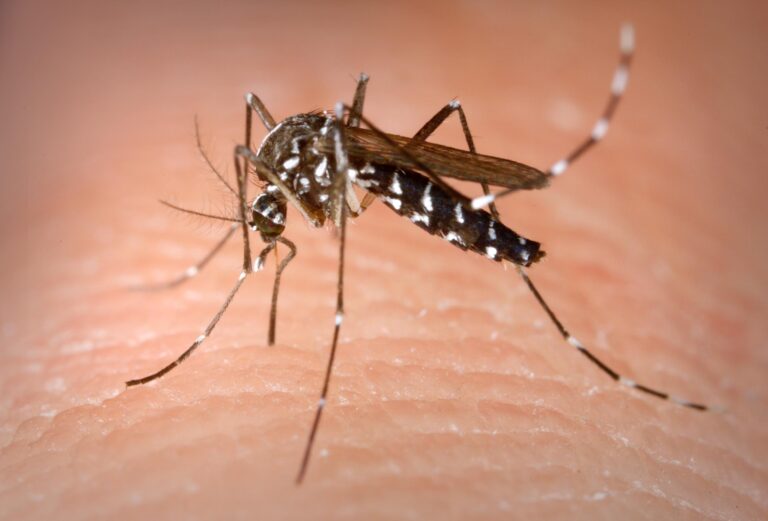France Confronts Increasing Risk of tropical Illnesses Due to Expanding Tiger Mosquito Population
In recent times,France has emerged as a focal point in the battle against a shifting public health crisis,primarily driven by the proliferation of tiger mosquitoes.These invasive species are now introducing tropical diseases that where once absent from the region. Historically limited to warmer climates, these pests have made significant advances into European territories, especially in southern France, prompting concern among health authorities and residents alike. The growth in mosquito numbers is closely associated wiht rising temperatures and altered weather patterns that create ideal conditions for transmitting illnesses such as dengue fever, chikungunya, and West Nile virus. As the nation confronts this new challenge, it becomes increasingly vital to reassess its readiness and response strategies regarding climate change and evolving disease threats.
The alarming rise of the Tiger mosquito (Aedes albopictus) within France has raised significant concerns among public health officials due to their role as carriers of various tropical diseases. The combination of warming temperatures and shifting climatic conditions has fostered an habitat conducive to their expansion beyond traditional habitats. This scenario presents considerable risks not only for local populations but also for public health systems that must now contend with potential outbreaks of diseases like dengue fever, chikungunya, and Zika virus. Local governments are tasked with adapting their strategies to address a reality where these illnesses are no longer restricted to tropical locales.
Recent research highlights that the threat posed by mosquito-borne diseases is not merely speculative but an immediate concern. With confirmed cases on the rise, there is an urgent need for enhanced community awareness and effective preventative measures. Residents are encouraged to take proactive steps such as eliminating standing water around their properties and using repellents to reduce bite risks. Here are some recommended actions individuals can take:
- Avoid: Remove stagnant water from containers, gutters, or bird baths.
- Cover: Install screens on windows and doors to prevent mosquitoes from entering.
- Shield: Wear long-sleeved clothing and apply insect repellent when outdoors.
- Notify: report any large concentrations of mosquitoes to local health authorities.
Diseases Transmitted Main Symptoms Manner of Transmission Dengue Fever Sustained high fever, intense headaches, joint pain Bites from infected mosquitoes
tr >
td >ChikungunyaFever , joint pain , rash Mosquito bites
tr >Zika Virus Fever , rash , conjunctivitis Mosquito bites
tbody >Health Professionals Call for Improved Surveillance Efforts Alongside Public Education Initiatives
The relentless spread of tiger mosquitoes across France has prompted health professionals to advocate for improved surveillance systems paired with complete public education initiatives .These insects serve as vectors for numerous tropical ailments including dengue fever​and chikungunya​and have increasingly been found in urban settings.Experts stress that early detection plays a crucial role in preventing outbreaks​and reducing potential health hazards​for residents. Key recommendations include :
- Enhanced Monitoring: Establish more traps ​for mosquitoes ​and conduct regular sampling in vulnerable areas.
- Community Involvement: Engage local populations in reporting sightings ​of mosquitoes ​and identifying breeding sites.
- Health Education Programs: Provide facts about symptoms related​to tropical illnesses along with preventive measures available to citizens.
- Regular application insecticides high-risk zones;;
- Introducing natural predators biological controls;;
- Establishing monitoring frameworks track breeding sites;;
/ul>;Moreover collaborating relevant organizations conduct surveillance programs will prove critical detecting outbreaks promptly deploying rapid response mechanisms.A well-coordinated effort between healthcare agencies municipal authorities citizens creates robust framework combatting pest proliferation ensuring safety overall populationS wellbeing.
Conclusion: Key Insights Moving Forward Towards Healthier Future Amidst Climate Change Challenges!
As France grapples pressing issues surrounding emerging threats linked directly expanding populations invasive species like Tiger Mosquitos intersection climate change impacts upon human welfare becomes paramount focus government entities researchers alike.Evolving nature these pests underscores necessity thorough strategic planning mitigate risks posed by ailments including Dengue Chikungunya! With potential further encroachment throughout Europe proactive interventions ranging educational outreach bolstered surveillance community engagement essential safeguard populace’s wellness! Navigating complexities requires collaboration scientists policymakers communities paving way united front against escalating dangers presented evolving landscape infectious disease amidst changing environmental conditions!
This collaborative approach combines scientific research efforts with community participation. Significant resources will be allocated towards training personnel on vector control techniques while utilizing diverse platforms within public campaigns aimed at reaching various demographics . Personal protective measures such as wearing long sleeves or applying insect repellent remain critical components in safeguarding individual well-being .A recent survey revealed increased awareness regarding tiger mosquitoes; however many individuals still lack knowledge about associated diseases they may transmit :
disease Manner Of Transmission Dengue Fever Bites from infected Aedes species C h ik ung unya Mainly transmitted via Aedes aegypti Pestilence Virus West NileBites from infected mosquitos Necessary Strategies To Address Mosquito Infestation And Reduce Disease Exposure In Affected Regions
The increasing presence of tiger mosquitos necessitates multifaceted approaches aimed at curbing both their population growth along with disease transmission rates​. Effective public education campaigns play an essential role informing communities about viable prevention tactics emphasizing elimination methods targeting stagnant waters where larvae thrive while encouraging collective clean-up activities.Additionally distributing mosquito repellent products alongside conducting workshops focused personal protection techniques empowers residents mitigate risk exposure effectively during outdoor activities..In conjunction with community initiatives local governments should consider implementing targeted control strategies designed suppress mosquito populations which may involve :




